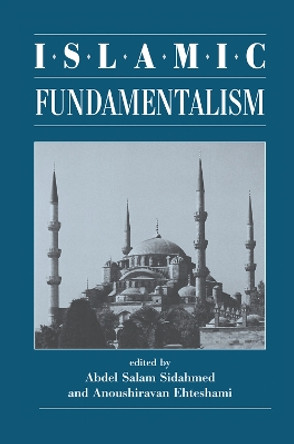Description
About the Author
Abdel Salam Sidahmed is associate professor of political science at University of Windsor. He co-authored Sudan: The Contemporary Middle East, and Humanitarian Crises and Intervention: Reassessing the Impact of Mass Media. Walter C. Soderlund has worked extensively in mass media studies with the Center for Social Justice. He also co-authored Humanitarian Crises and Intervention: Reassessing the Impact of Mass Media. E. Donald Briggs is professor emeritus of political science at the University of Windsor.
Reviews
Sidahmed, Soderlund, and Briggs (all, Univ. of Windsor, Canada) present two essays in just over 100 pages. One is a rapid survey of the proclaimed genocide in Darfur, centering on the contradiction of respect for state sovereignty and the doctrine of an international responsibility to protect (R2P) citizens inside states. The second is a survey of the several years of reporting and interpretation by the mass media. The audience for the first will find a workmanlike summary of events. The audience for the second will find a useful short investigation of how the media treated news of the mass killings and the issue of intervention. The New York Times as the exemplar of serious press gains special attention; Nicholas Kristof is credited with keeping the Darfur story alive. The media section of this book reflects some original research with interesting analyses of the nature and amount of coverage. Overall, the conclusions are unsurprising: R2P remains a failure in Darfur, and how to square the doctrine of state sovereignty with the actual ability to enforce remains a dilemma. As readers might expect, the mass media does an inadequate job of covering continuing humanitarian crises. Copious appendixes and bibliography. Recommended. * CHOICE *
Media coverage of the Sudan government's onslaught on Darfur villages alerted the world and-for a while-reduced the frequency of the attacks. The acknowledgement in the UN of the international "Responsibility to Protect" raised the Darfuris' hopes that the world would help them. But what stopped brave reporting and well intentioned institutional words from prompting effective action? This downbeat examination of the war in Darfur takes a close and sobering look at the arguments over international protective intervention and the fraught role of media coverage. It shines a useful light on often overlooked aspects of the conflict and the way that actions have fallen far behind the words. -- Peter Verney, editor of Sudan Update, and author of Raising the Stakes: Oil and Conflict in Sudan
Relevance and accessibility to various audiences are important strengths of The Responsibility to Protect. The book leaves out much of the jargon that makes academic books inaccessible to audiences outside of academia, and often inaccessible outside of specific disciplines and subdisciplines....This book includes significant empirical research on how the media cover world events, and how this coverage might influence the public and policymakers. It offers important background information on the human rights abuses and humanitarian crisis in Darfur. Their findings that the media influences how the public thinks about current events are even more relevant today as the world watches media coverage of new and continuing human rights abuses in Egypt, Tunisia, and Iran, and humanitarian crises in Haiti, south Sudan, and, of course, Darfur. * H-Net: Humanities and Social Science Reviews Online *
Book Information
ISBN 9780739138076
Author Abdel Salam Sidahmed
Format Paperback
Page Count 164
Imprint Lexington Books
Publisher Lexington Books
Weight(grams) 268g
Dimensions(mm) 231mm * 154mm * 11mm








